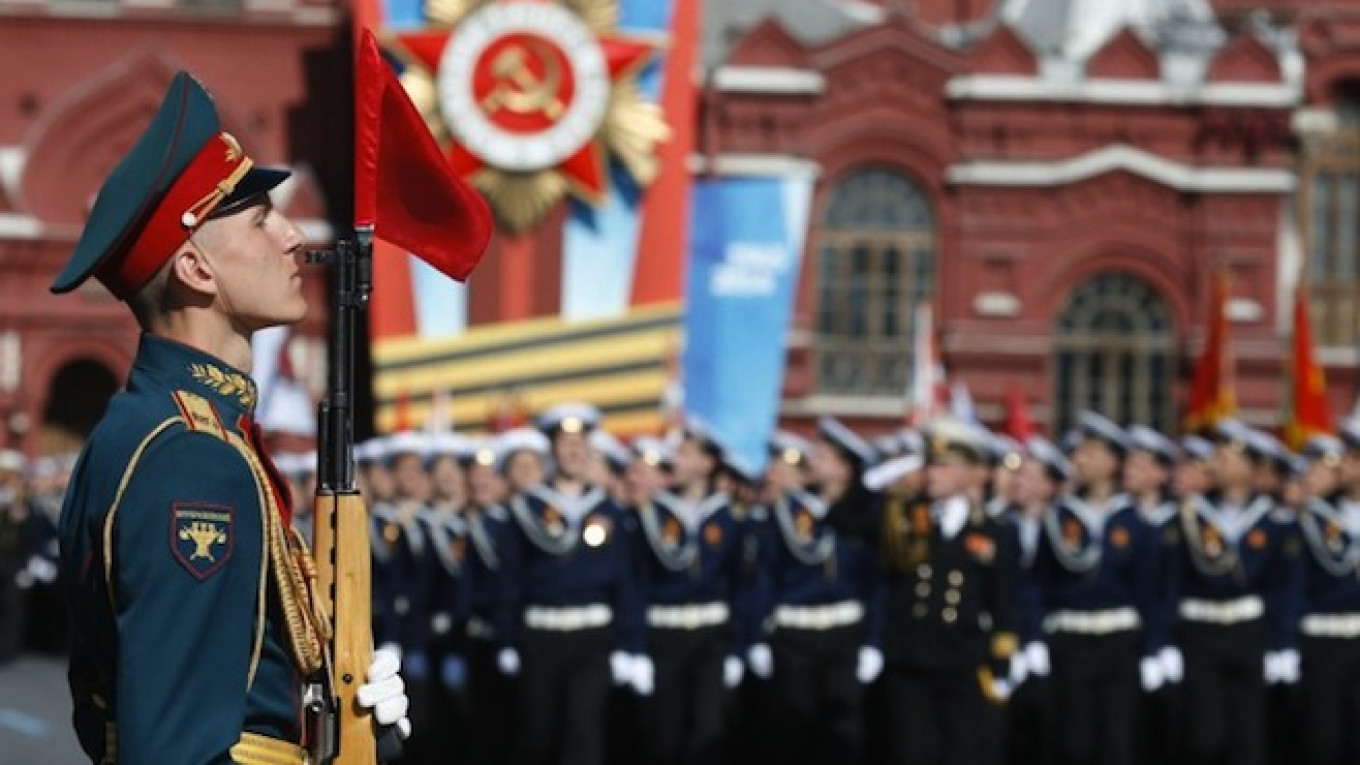Russia's national defense budget for next year will reach a record 3.3 trillion rubles ($81 billion), or 4.2 percent of the country's GDP, the head of the State Duma's defense committee, Admiral Vladimir Komoyedov, was quoted as saying by the Interfax news agency on Thursday.
The 2015 budget represents an 812 billion ruble ($20 billion) increase over this year, and portends a larger defense budget over the next several years. Russia's GDP this year is forecast at just over $2 trillion, according to the World Bank, and Russia's Finance Ministry expects it to grow by a mere 1 percent in 2015, state news agency TASS reported.
According to Komoyedov, the Duma plans to spend 3.1 trillion rubles ($76 billion), or 3.7 percent of GDP, on defense in 2016 and 3.23 trillion ($79 billion), or 3.6 percent of GDP, in 2017.
“These parameters are significantly higher than in 2014, when the proportion of GDP was 3.4 percent,” Komoyedov was quoted as saying by Interfax. Last year, defense expenditures made up 3.2 percent of GDP, and were a mere 3 percent in 2012.
With the exception of the United States, which spent 3.8 percent of its GDP on defense in 2013, most of the world's countries spend less than 3 percent of their GDP on their militaries, according to World Bank data. In general, U.S. defense expenditures measured in percentage of GDP have been falling sine 2010, when spending reached 4.7 percent of GDP.
However, World Bank data paints an even more drastic picture of Russia's recent defense spending than Komoyedov did. Last year the World Bank said Russia's defense budget was already 4.2 percent of its GDP.
This graph shows military spending over the last decade by the U.S. and Russia measured in GDP.
This rise in military spending comes at a time of economic contraction for Russia, as low oil prices, inflation and Western sanctions over the Kremlin's role in the Ukraine crisis all hit home.
The drastic increase in defense investments may in some sense be a boon to Russia's economy. A report released by Moscow's Higher School of Economics in late September showed that a rise in military and related defense expenditures, such as "the production of ships, airplanes, spacecraft and other means of transportation," was one of the primary driving forces behind a surge in industrial production.
But the report cautioned that these developments mask stagnation across most other areas of manufacturing.
Defense officials may have to fight for their budget, though. Finance Minister Anton Siluanov was earlier reported to have said that Russia's economic forecast has sufficiently worsened to warrant a review of Russia's rampant military spending.
President Vladimir Putin in 2012 launched an ambitious, far-reaching rearmament program through 2020 valued at 20 trillion rubles ($500 billion), and the government is currently drumming up a subsequent program due to begin in 2016.
But Siluanov said the upcoming program cannot be funded at the same levels as the 2020 program, and the Finance and Defense ministries are working together to optimize the costs of the new program.
A Message from The Moscow Times:
Dear readers,
We are facing unprecedented challenges. Russia's Prosecutor General's Office has designated The Moscow Times as an "undesirable" organization, criminalizing our work and putting our staff at risk of prosecution. This follows our earlier unjust labeling as a "foreign agent."
These actions are direct attempts to silence independent journalism in Russia. The authorities claim our work "discredits the decisions of the Russian leadership." We see things differently: we strive to provide accurate, unbiased reporting on Russia.
We, the journalists of The Moscow Times, refuse to be silenced. But to continue our work, we need your help.
Your support, no matter how small, makes a world of difference. If you can, please support us monthly starting from just $2. It's quick to set up, and every contribution makes a significant impact.
By supporting The Moscow Times, you're defending open, independent journalism in the face of repression. Thank you for standing with us.
Remind me later.


